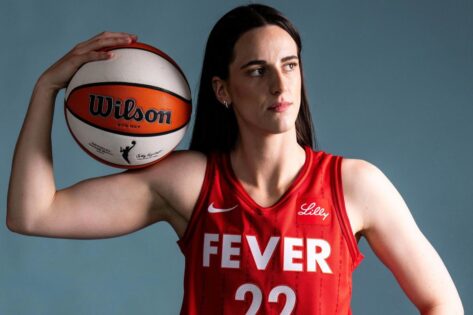

The Indiana Fever, led by rookie sensation Caitlin Clark, have found themselves at the center of a swirling controversy regarding WNBA officiating. While the Fever's struggles are apparent, some analysts are suggesting that the issues extend far beyond just one team. A national analyst has made a bold claim that the problems with officiating aren't unique to the Indiana Fever, pointing towards a league-wide issue affecting multiple teams and players.
Concerns regarding WNBA officiating aren't new, but the arrival of Caitlin Clark has amplified the discussion. The increased viewership and attention on the league have put a spotlight on every call, missed call, and questionable decision made by referees. This scrutiny has led to heightened criticism and accusations of bias from fans, analysts, and even coaches.
Following a closely contested game against the New York Liberty, Fever head coach Stephanie White openly criticized the referees, calling the officiating "egregious." White questioned the fairness and effectiveness of the league's system for addressing disagreements with referee decisions. She highlighted a significant free throw disparity, suggesting that her team wasn't getting the same respect from officials as their opponents.
White isn't alone in her assessment. Fans have taken to social media to voice their displeasure with the officiating. Some have gone as far as to accuse referees of "rigging" games against the Fever. These accusations are fueled by perceived missed calls and inconsistent enforcement of rules.
Adding fuel to the fire, a video of Clark animatedly disagreeing with a referee's call during a game against the Washington Mystics went viral, further intensifying the debate about officiating standards in the WNBA.
The controversy has even reached the NBA, with reports suggesting that Commissioner Adam Silver has taken notice of the situation. According to some reports, Silver has directed WNBA Commissioner Cathy Engelbert to address the officiating concerns and ensure fair treatment for all players, including Clark.
It's important to note that officiating is a challenging job, and referees are bound to make mistakes. However, the frequency and magnitude of questionable calls have raised concerns about the overall quality and consistency of officiating in the WNBA. Some observers suggest that the league's rapid growth and increased attention have simply exposed existing problems that need to be addressed. Others argue that the unique physicality and style of play in the WNBA require a different approach to officiating compared to the NBA or college basketball.
Several possible solutions have been proposed to improve WNBA officiating. Some suggestions include increased training and development for referees, the implementation of stricter accountability measures, and the use of technology to review controversial calls. Others advocate for a change in the culture and mindset surrounding officiating, with a greater emphasis on fairness, consistency, and transparency.
Ultimately, the WNBA must take steps to address the concerns about officiating to maintain the integrity of the game and ensure a positive experience for players and fans alike. Whether it involves implementing new rules, improving training, or changing the culture, it's clear that something needs to be done to restore confidence in the league's officiating.